What are sleep disorders?
Sleep disorders are common problems that have a big impact on how much sleep you get at night.
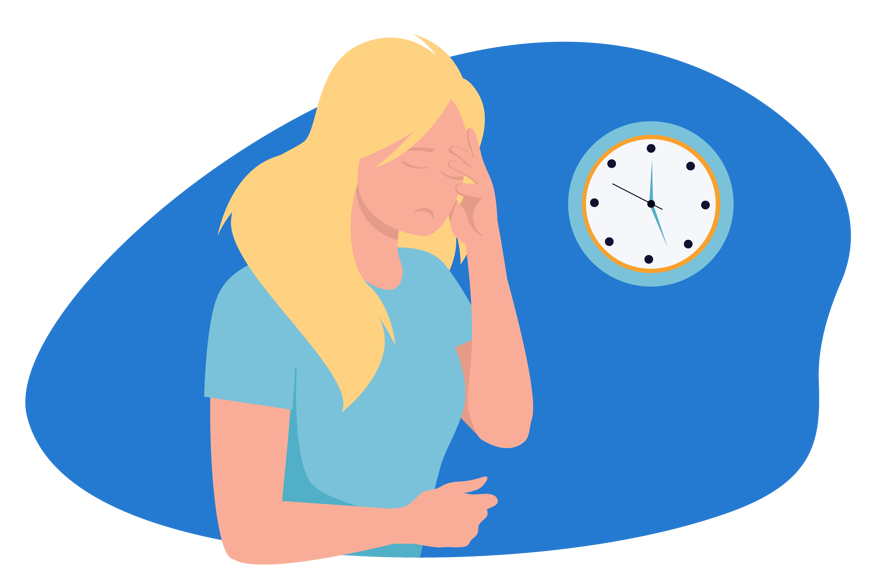
Sleep problems include outside influences that cause sleep disturbance (such as noise and light), while sleep disorders include disturbances in the mind or body.
A sleep clinic can help diagnose and treat severe sleep disorders, but you can make some lifestyle changes for less severe cases.
We’ll unpack some of the most common types of sleep disorders below. 👀
Insomnia
Insomnia is a common disorder of sleep which makes it difficult to fall or stay asleep at night. 📉
Insomnia can be a long-term (chronic insomnia) or short-term (acute insomnia) problem.
Stress, depression, and caffeine consumption are possible causes of this sleeping disorder.
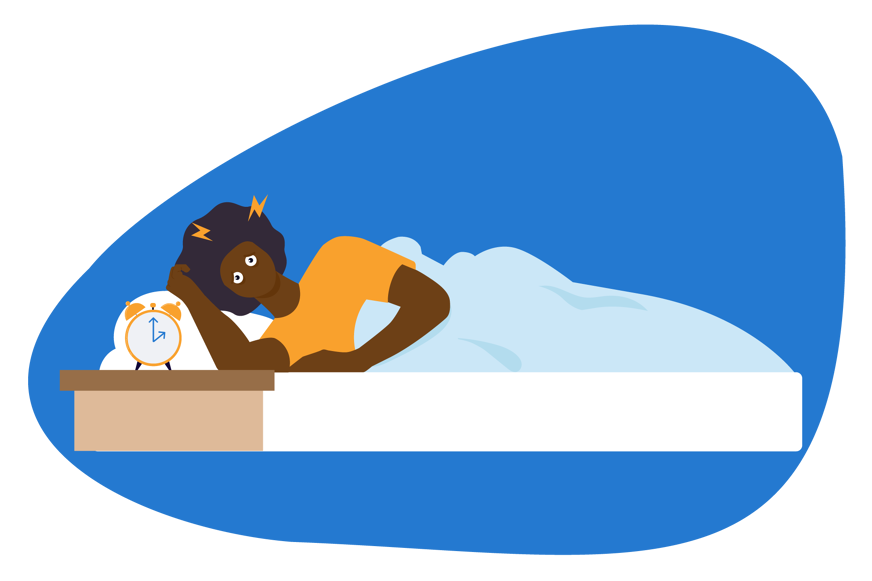
Modifying sleep habits, like establishing a consistent sleep schedule and practising good sleep hygiene, can help treat insomnia.
A sleep doctor may suggest cognitive behavioural therapy [1] for insomnia in more severe cases, which can help you change unhelpful thought patterns and behaviours that prevent sleep.
Improving your mattress and pillow for acute insomnia could also improve your sleep quality. 🛌
Sleep apnoea
Sleep apnoea is a disorder caused by breathing pauses during sleep. 🌬️
These pauses can last from a few seconds to a minute and occur up to 30 times or more an hour.
In addition to disrupting your sleep, sleep apnoea can cause excessive daytime fatigue, memory problems, and even high blood pressure.
Treatments for sleep apnoea range from lifestyle changes, such as losing weight or sleeping on your side, to using a continuous positive airway pressure [2] (CPAP) machine.
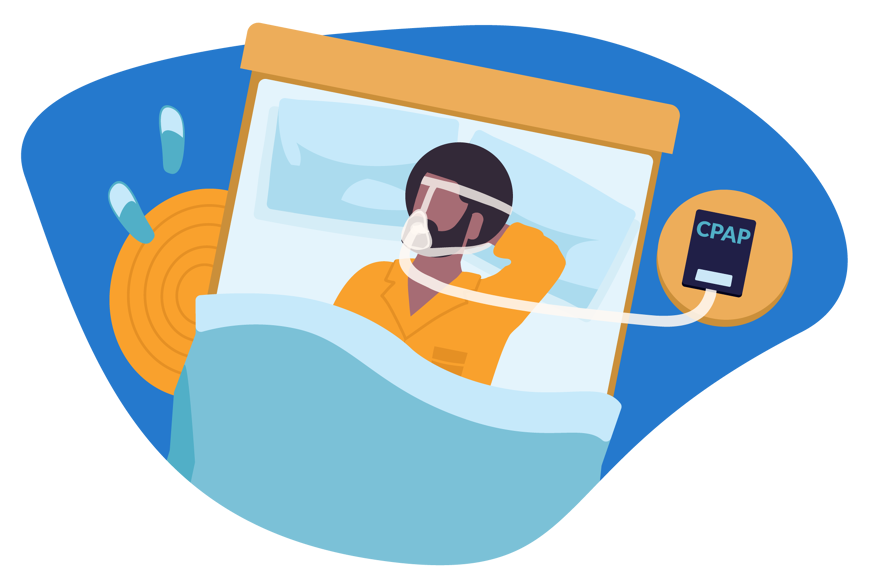
Sleep talking
Sleep talking (also known as somniloquy) is a disorder where a person speaks in their sleep.
While it may seem funny at first, it can be disruptive to both the sleep talker and anyone sleeping nearby. 🙉
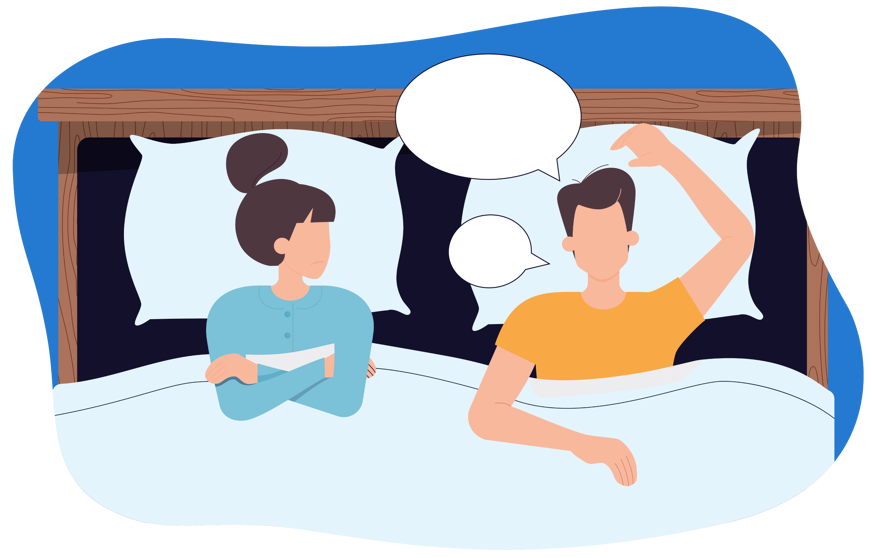
Sleep talking can be caused by stress, sleep deprivation, and certain medications. 💊
In most cases, it's harmless and requires no treatment, but if it becomes frequent or affects your daily life, you may want to talk to your doctor.
Sleep paralysis
Sleep paralysis is a temporary inability to move or speak while falling asleep or waking up. 🚫
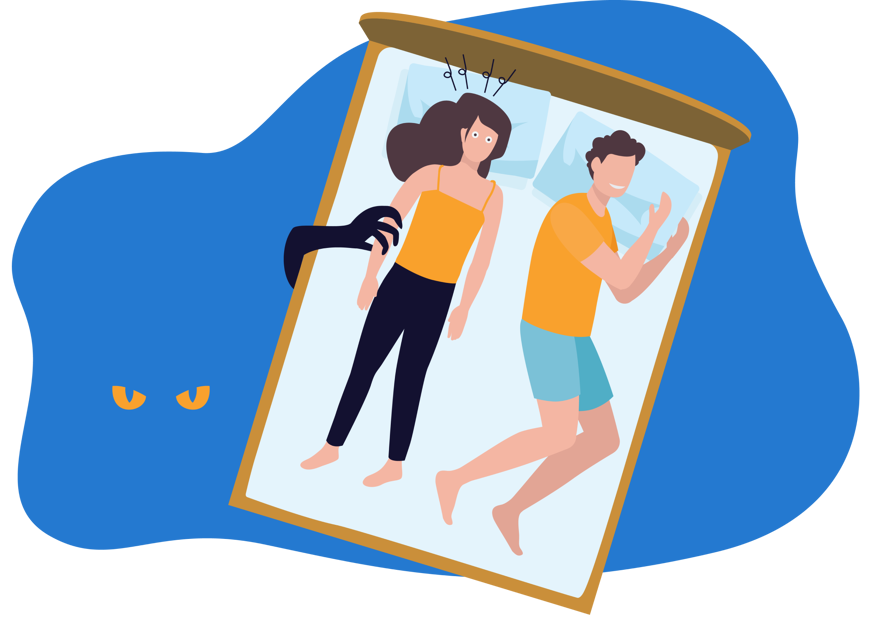
During an episode, you may feel like you're being suffocated or held down by an invisible force. 😨
While scary, sleep paralysis is a relatively common phenomenon caused by sleep deprivation, stress, and anxiety.
If you experience sleep paralysis frequently, talking to your doctor can help you find the proper treatment to get you back to sleeping soundly.
Sleep bruxism
Bruxism is the medical term for grinding or clenching your teeth during sleep. 😬
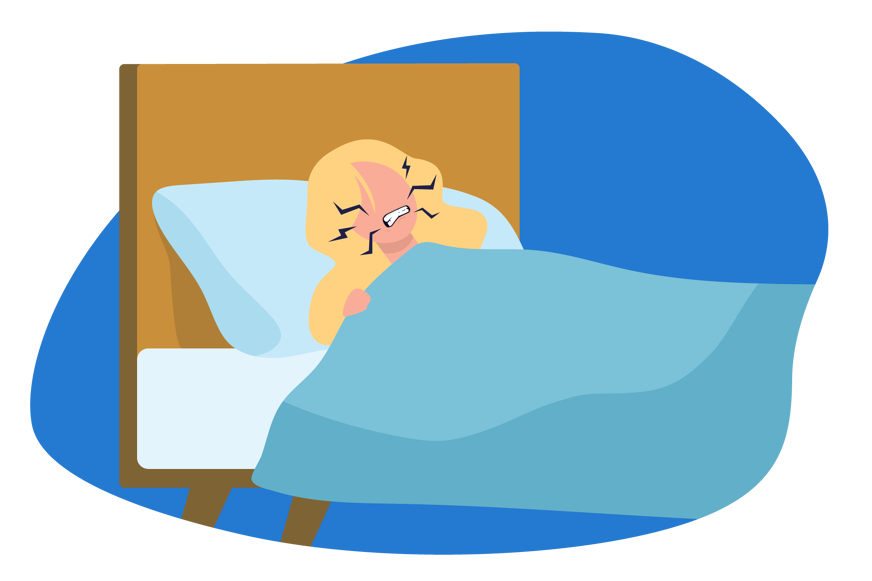
Sleep bruxism can be caused by stress, anxiety, and even certain medications.
It's a common sleep disorder that can cause jaw pain, headaches, and even tooth damage. 🦷
Treatment options include wearing a mouthguard at night or seeking counselling.
Snoring
Snoring is a common sleep disorder where airflow through the mouth and nose is partially blocked.
Snoring in your sleep is typically harmless but can lead to sleep trouble for the other person and create stress in some relationships. 💑
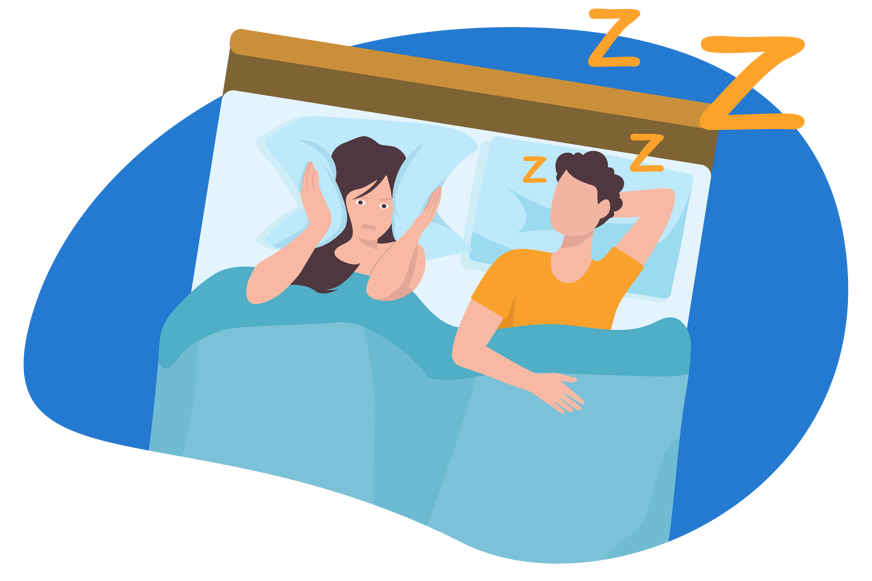
It can also signify a more severe sleep disorder like sleep apnoea.
Lifestyle changes and anti-snoring pillows can help reduce snoring, and in more severe cases, treatment may involve using a CPAP machine or surgery.
Narcolepsy
Narcolepsy is a chronic sleep disorder characterised by excessive daytime drowsiness and sudden sleep attacks.
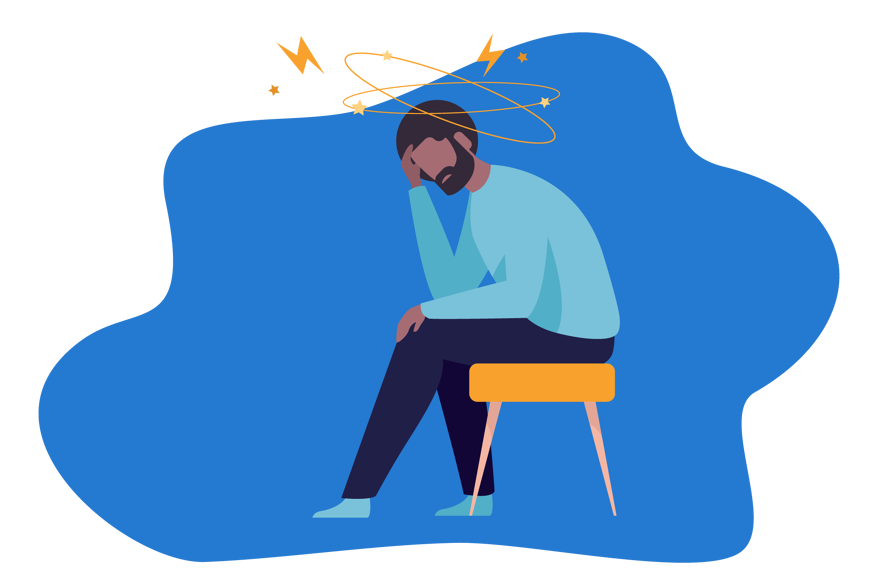
The condition arises due to a deficiency in the brain chemical hypocretin, which regulates wakefulness, and might be a result of the immune system mistakenly attacking related cells.
It's estimated that around 30,000 people in the UK suffer from narcolepsy.
While there's no cure for narcolepsy, symptoms can be managed with medications and lifestyle changes such as scheduled naps.
Sleepwalking
Sleepwalking is when you perform physical activities during sleep, such as sitting up, walking around, or even completing other tasks like getting dressed and eating.
The precise cause of sleepwalking remains unknown, but factors like genetics, sleep deprivation, stress, certain medications, and even other sleep disorders can exacerbate it.
If you experience sleepwalking, you should create a hazard-free environment and have any house members guide you gently back to bed without startling them. 🤫
For more severe cases, treatments like cognitive behavioural therapy or certain medications might be necessary.
Restless leg syndrome
Restless leg syndrome (RLS) is the uncontrollable urge to move your legs.
The symptoms of restless leg syndrome tend to worsen in the evening, which can lead to problems falling asleep or returning to sleep after waking.
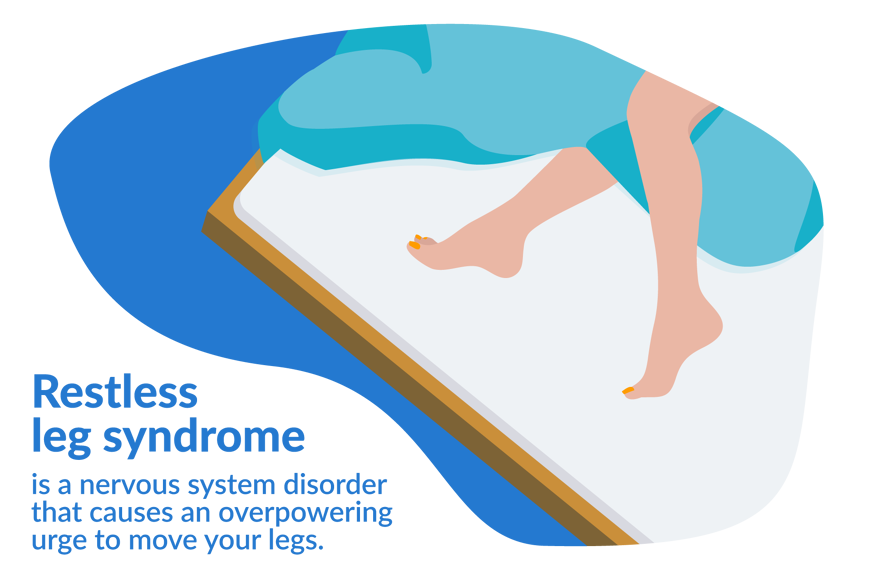
Women are twice as likely to experience restless leg syndrome, and it's thought that it will affect 20% of pregnant women [3].
It's not often known what causes someone to experience restless leg syndrome.
Our ability to handle dopamine [4] could be one factor, as well as underlying health conditions such as iron deficiency [5] and kidney failure. 🫘
Exercise and good sleep hygiene can help mild RLS, while severe cases may need supplements or medication.
Other sleep disorders
Those are some of the most common, but many other sleep disorders can keep you up at night. 🌙
Other sleep problems include:
- Narcolepsy
- Sleep terrors
- Sleepwalking
- Sleep breathing disorders
- Sleep eating
- Parasomnias
- Circadian rhythm sleep disorders
- ADHD sleep disorders
- Menopause sleep problems
- Pregnancy sleep problems
Depending on the severity, you can treat some sleep disorders at home.
More severe cases may require additional treatment in a sleep clinic by a sleep specialist.
How much sleep do you need?
Medical advisors recommend adults get between 7 - 9 hours of sleep every night.
But a recent sleep study [6] found that 71% of Brits are not getting this recommended amount of sleep.
In fact, 1 in 7 UK adults gets under 5 hours of sleep. 😱
Our article, Is 6 Hours of Sleep Enough? discusses the impact of less sleep.
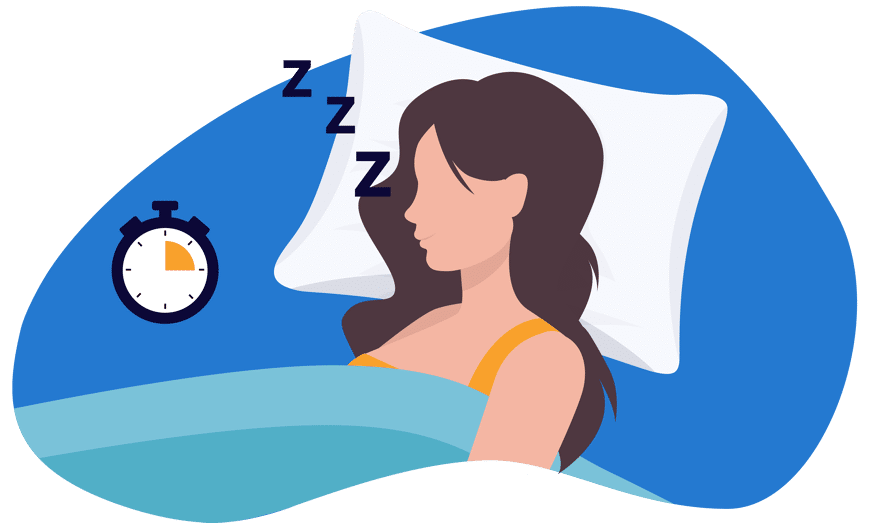
Sleep deprivation can have a significant impact on our mental and physical health.
We'll go into more detail about these negative effects in our article.
Why is sleep important?
Sleep is vital for our health and wellness, and disruptions to the circadian rhythm [7] can have harmful consequences. ⏰
The circadian rhythm is like an internal 24-hour clock regulating biological processes, including your sleep-wake cycle.
However, outside influences, such as mental health, stimulants, jet lag, shift work, and sleep disorders, can interrupt this clock.
What causes sleep disorders?
Good sleep is important for our health and daily activities. 🚶
And understanding the reasons for sleep problems can help us find ways to treat them.
This section will look more closely at sleep disorders causes and what you can do.
Medical conditions and medication
Medical conditions or taking certain medications is a big cause of the onset of sleep disorders.
Chronic pain, breathing problems at night, and conditions like Parkinson's and restless leg syndrome can disrupt sleep. 🦵
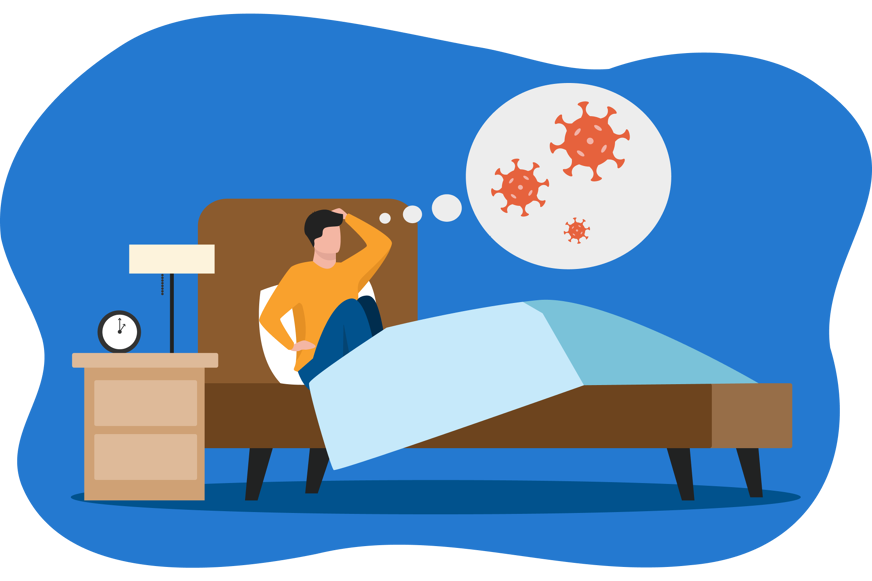
But it's not just severe conditions that are to blame.
Daily meds like stimulants, decongestants, and beta-blockers can cause havoc on your sleep patterns.
Even over-the-counter remedies like nicotine patches and weight loss supplements can affect sleep.
Beta-blockers [8] can cause nightmares, and cholesterol meds can lead to leg cramps, making it impossible to fall asleep.
If you suffer from a long-term medical condition, this could be why you're having trouble getting to sleep [9].
If your meds are messing with your sleep, you should seek medical advice from your GP or pharmacist to find a solution that works for you. 🩺
Stress, anxiety and depression
Stress, anxiety, and depression can turn into a dangerous sleep-depriving spiral.
These emotional states can lead to insomnia or other deep sleep disorders. 🌀
But the impact goes both ways.
Poor sleep quality increases the risk of mental health issues, causing irritability, fatigue, and a lack of motivation.
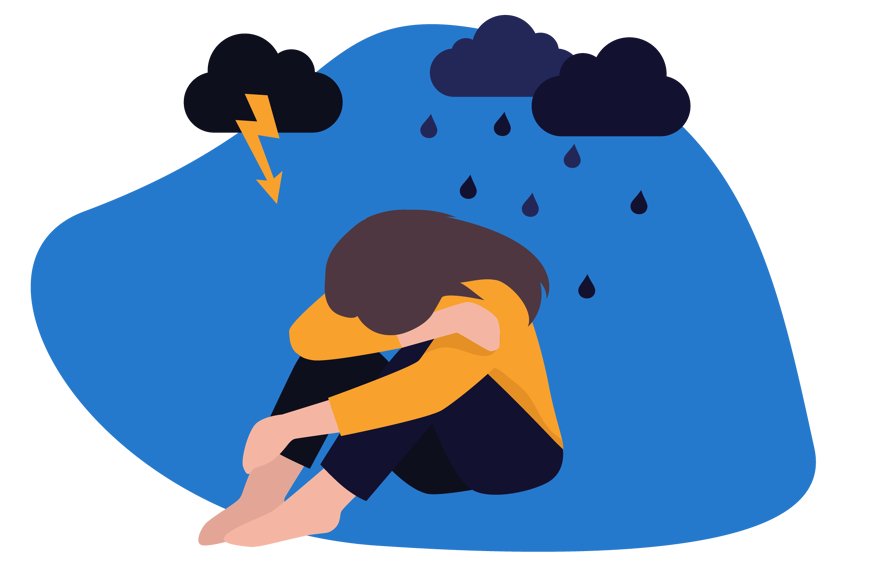
A lack of sleep can also trigger feelings of depression and anxiety, and studies [10] found that up to 80% of people with depression also have insomnia.
Antidepressants [11] can suppress REM sleep, disrupting your natural sleep cycle.
Low mental health can also lead to dream disorders, such as sleep terrors and nightmares. 💭
Don't hesitate to seek assistance from a qualified professional if you're having trouble sleeping because of mental health conditions.
Light and noise pollution
Bright lights and loud noises are two of the biggest sleep-stealers.
Exposure to bright light in the evening disrupts your body's internal clock, making it difficult to fall asleep. 💡
This can be a particular problem for those that do shift work.
Blackout curtains, eye masks, and a dark environment can help signal to your body that it's time to sleep.
Noise can also ruin a good night's sleep, causing frequent waking. 🔇
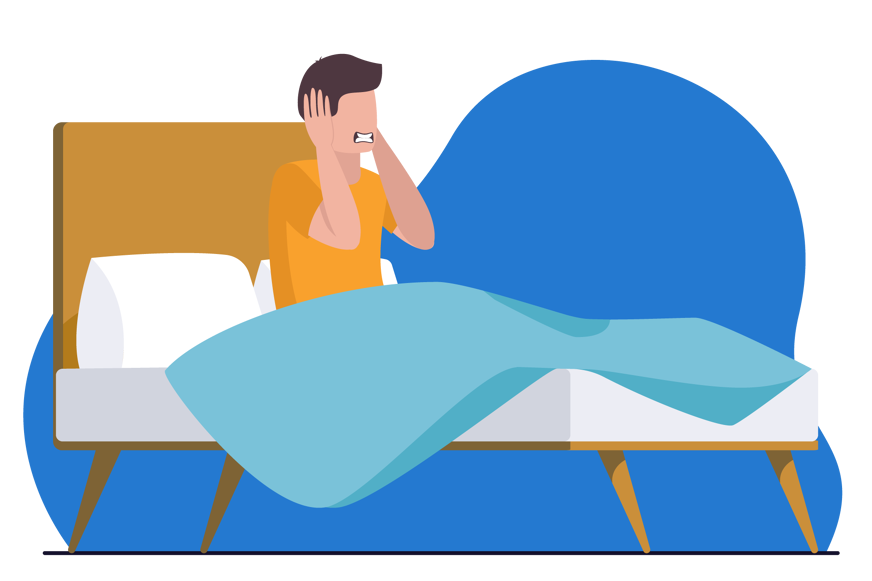
City dwellers and those with noisy neighbours know this all too well. 🌃
Noise-cancelling headphones and white noise machines can help eliminate distractions and create a peaceful sleep environment.
But for some, background noise or ASMR, which features tapping, scratching, or whispering sounds, is essential in helping to fall asleep.
What are the consequences of poor sleep?
Lack of quality sleep can have many consequences that can be much more serious than just feeling tired.
But what different areas of life can sleep disorders affect?
Mental health and wellbeing
Sleep disorders can also have a major impact on mental health and well-being. 🧠
Research [12] has shown that people who suffer from sleep disorders may experience mood changes, including irritability, anxiety, and depression.
This can then become a vicious circle and lead to other sleep problems, such as insomnia or waking up from nightmares.
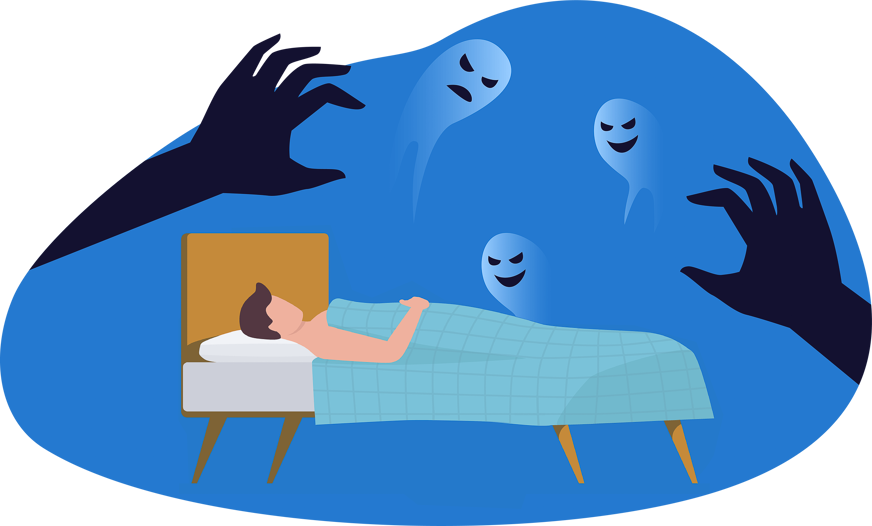
The mental health charity Mind [13] explains how lack of sleep can lead to suicidal thoughts or psychotic episodes. 😟
In fact, sleep is one of the most important components of good mental health.
In 1963, Randy Gardner made the record for the most time gone without sleep - 11 days!
During this time, he explained how it felt like he had early Alzheimers, showing how much sleep is vital for our mental health.
Physical health and appearance
The impact of good sleep on physical health and appearance cannot be understated.
Studies [14] show that the symptoms of sleep deprivation can lead to various health problems, including high blood pressure, obesity, heart disease, and diabetes.
A lack of sleep can also weaken the immune system, making you more susceptible to illness. 🤧
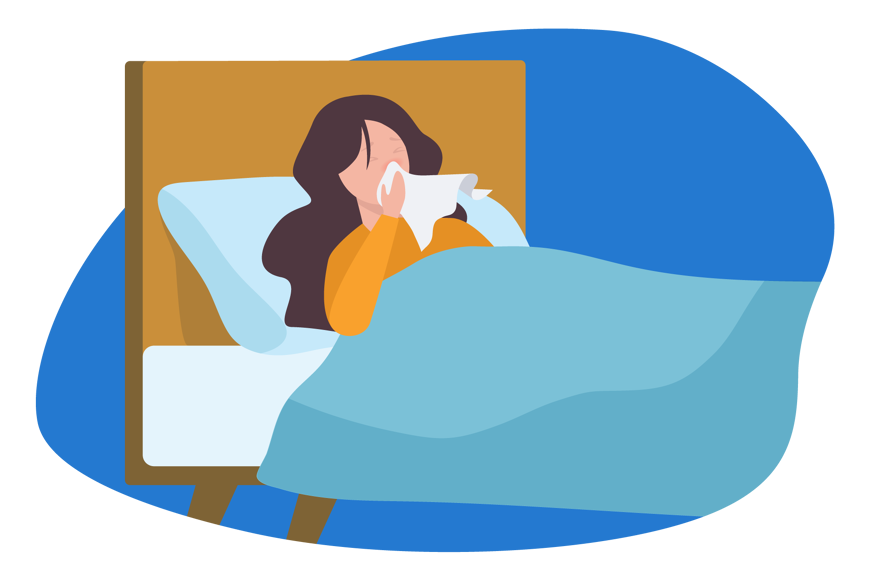
In addition to its effects on health, sleep deprivation can also impact your appearance.
Those who don't get enough sleep are more likely to have a fatigued appearance [15], including dark circles under their eyes, paler skin, wrinkles, and a sad complexion.
Getting adequate sleep is crucial for our overall health and well-being and also plays a role in maintaining a healthy appearance. 🌞
In other words, sleep should be an essential part of your beauty and health regime.
Relationships and work performance
Sleep disorders can have a profound impact on your life.
Chronic sleep disorders can also impair cognitive function, which can be especially dangerous in jobs that require alertness and quick reflexes, like driving or working with heavy machinery. 🏭
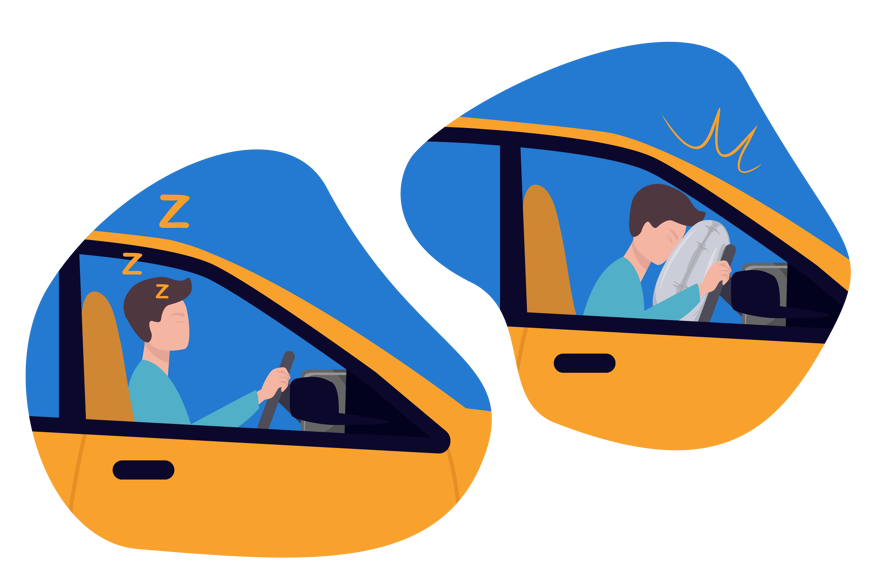
The effects of sleep disorders on your work can be particularly damaging.
You may struggle to keep up with your workload, missing deadlines, or even nod off during important meetings.
This can lead to a decline in work quality [16], damage your professional reputation, and put your job security at risk.
In severe cases, sleep disorders can even lead to social isolation and job loss, which can be devastating for your emotional well-being and financial stability. 📉
Help with sleep disorders
If you're struggling with sleep problems, many options are available to help you get the rejuvenating sleep you need.
Sleep disorders treatment varies from natural practices to more serious treatment, such as attending a sleep disorders clinic.
Try this at home
Improving sleep quality can often be achieved through self-help techniques and changes to your nightly routine. 🏠
Here are a few tips to consider:
- Establish a regular sleep schedule, going to bed and waking up at the same time each day.
- Avoid electronic devices a few hours before bed, as they emit blue light, which can interfere with your circadian rhythm.
- Incorporate relaxing activities into your bedtime routine, such as reading a book or listening to calming music.
- Create a calming sleep environment by keeping your bedroom dark, cool, and quiet.
- Consider investing in a comfortable mattress, pillows and bedding.
- Keep a notepad by your bed and jot down any worries or to-dos that come to mind.
- Take a warm bath or shower before bed to help you relax and wind down and practise good sleep hygiene.
- Consider drinking a cup of non-caffeinated tea or warm milk before bed to help you relax.
Perhaps you can also make some adjustments to your daily life that might help if you're suffering from anxiety or other issues that can lead to sleep deprivation.
Include more exercise into your routine and set daily goals to help you feel accomplished throughout the day, which can help you feel more relaxed during the evening. 😴
Seek medical treatment
If self-help techniques aren't enough, many medical treatments are available for sleep disorders. 💊
Your doctor may prescribe medication to help you fall asleep or stay asleep.
In some cases, surgery may be necessary to treat a sleep disorder.
For example, soft tissue in the back of the throat can cause obstructive sleep apnoea, and surgery can remove this tissue.
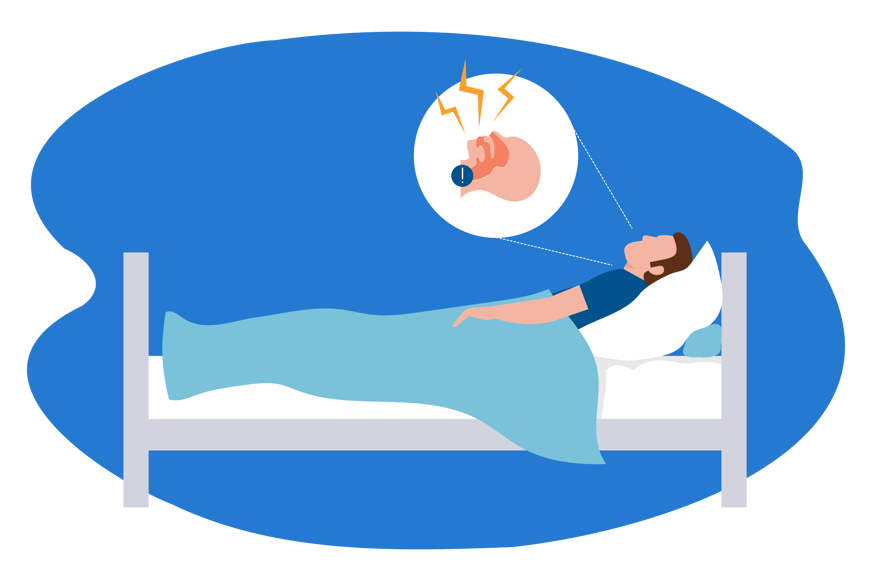
Body pillows can also be helpful for those suffering from back pain or more severe conditions, such as a herniated disc or sciatica.
Additionally, those who occasionally struggle with sleep could try taking melatonin supplements or sleeping pills to help the internal body clock know when it’s time to sleep.
However, even some over-the-counter medications can have negative side effects. 🙅♀️
We recommend speaking to your healthcare provider before taking any medication or supplements.
Try alternative therapy
Several options are available if you're looking for alternative therapies to improve your sleep.
Acupuncture has been effective in treating insomnia and can help balance the body's energy and promote relaxation.
Meditation can also help improve sleep quality, as it helps calm the mind and reduce stress. 🧘♂️
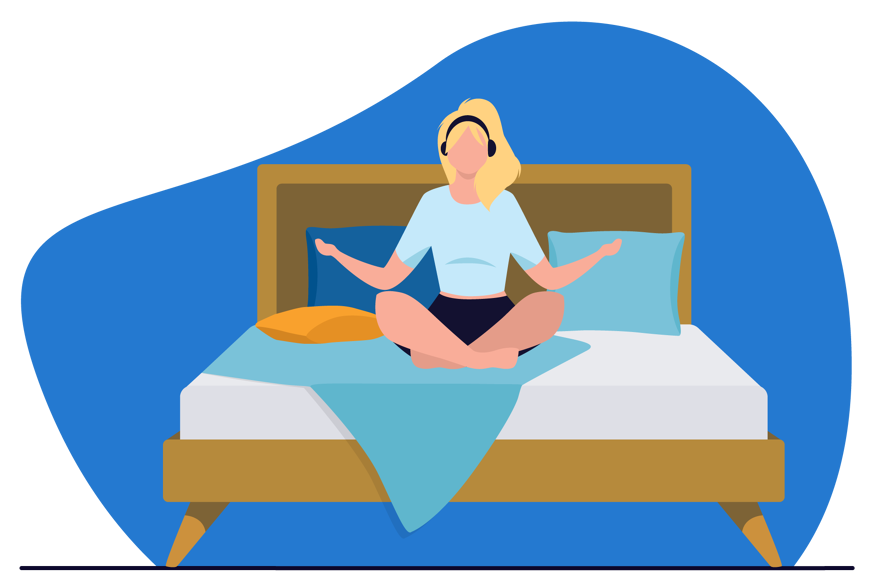
Other alternative therapies that may be helpful include aromatherapy, massage (or massage guns), and yoga. 💆♀️
ASMR is another alternative solution for those that feel sleepy and relaxed when hearing certain triggering sounds.
You can improve your sleep quality with the proper treatment and enjoy a healthier, more fulfilling life.
Sleep problems in babies and children
Unfortunately, many children experience sleep issues that can affect their physical and emotional health.
Childhood sleep disorders may have different symptoms and treatments compared to adults.
Sleep problems in babies
Infant sleep issues are a common concern for parents.
Newborns sleep for 16 to 17 hours of sleep each day, waking up for feedings.
However, some infants may have trouble falling asleep or staying asleep as they grow older. 👶
Some baby sleep disorders signs include refusal to go to sleep, waking up and crying during the night and clinginess before bedtime.
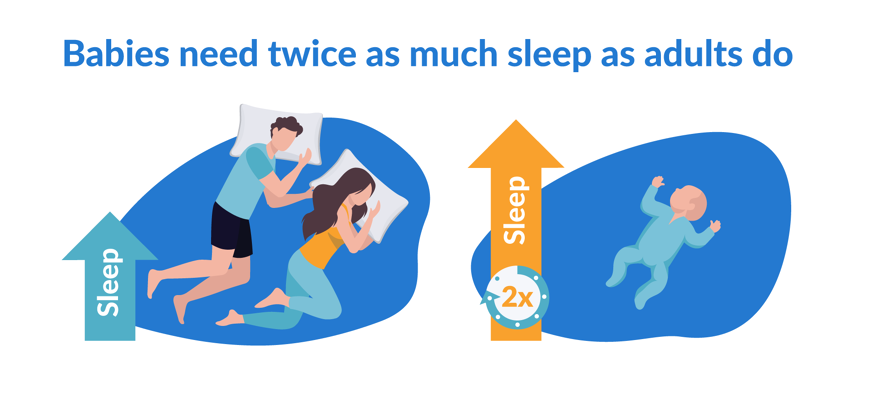
Potential causes of infant sleep issues include medical conditions such as reflux and colic.
But some babies just don’t sleep as well as others.
You can change your baby’s sleep environment by reducing noise or light and promoting self-soothing skills. 💤
Sleep problems in children
Sleep disorders in children can include difficulty falling asleep, frequent night waking, night terrors and bed wetting. 🌊
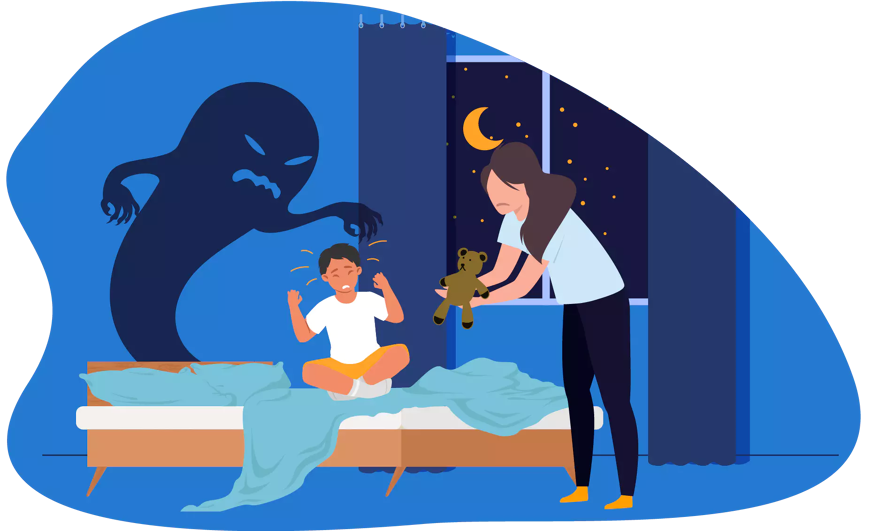
You can also try positive reinforcement techniques, such as reward charts or small incentives, to promote healthy sleep habits.
For bed-wetting specifically, parents can manage the child's fluid intake during the day and encourage them to use the bathroom before bed.
We also recommend using waterproof mattress protectors to prevent permanent accidents.
Many childhood sleep disorders, such as bedwetting and sleepwalking, will disappear as children mature.
Why sleep is important for babies and children
Sleep is vital in encouraging growth and development in children and babies. 👶
While asleep, the body repairs and promotes the formation of neural connections in the brain.
These factors are all important for a baby's physical and cognitive development and the immune system.
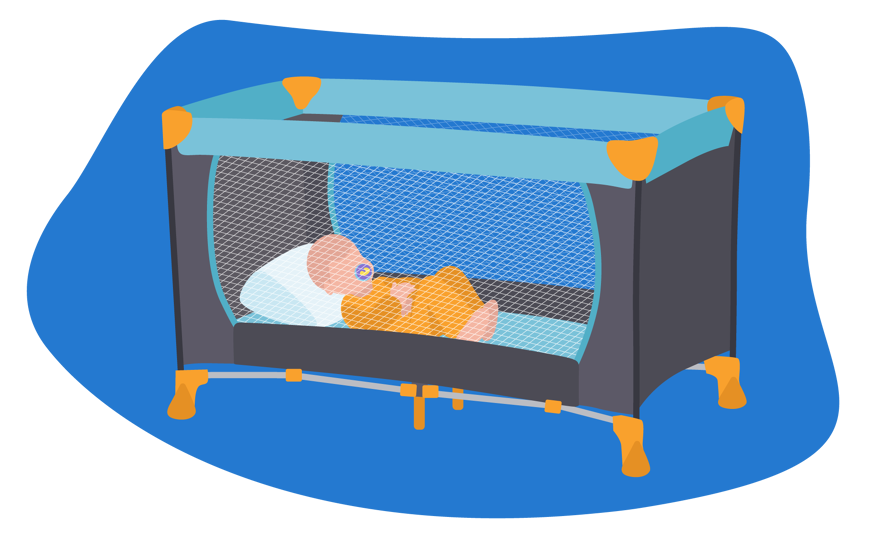
Sleep problems in children can have a significant impact on their physical and emotional health, as well as their academic performance [17]. 🧠
Children who do not get enough sleep may experience behavioural problems, including hyperactivity and irritability.
They may also have difficulty concentrating and may perform poorly in school.
Chronic sleep deprivation has also been linked to an increased risk of obesity and other health problems.
By promoting healthy sleep habits, parents can help ensure their children get the restful sleep they need to thrive. 💪
To sum up . . .
Sleep disorders are more than just an annoyance.
They can significantly impact our mental health, cognitive function, and physical performance.
And many different sleep disorders can disrupt our slumber.
However, understanding the causes of sleep disorders and addressing them can improve our overall health and well-being. 🏋️♂️







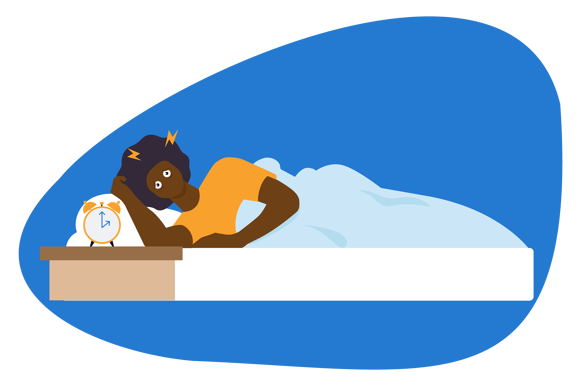
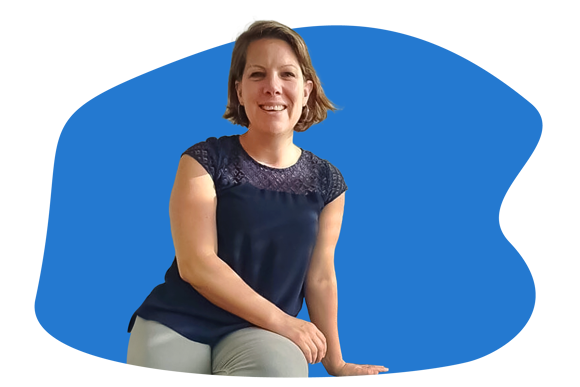
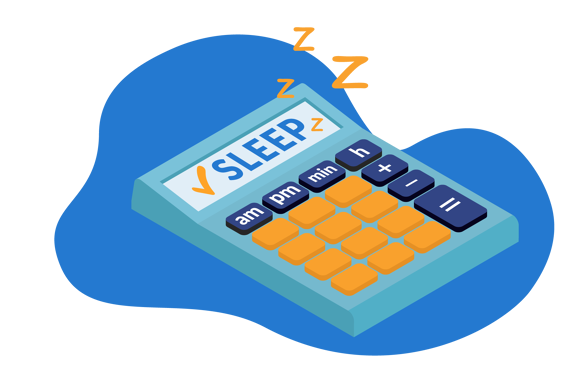


Alternatively, message us directly via the Contact Us page.